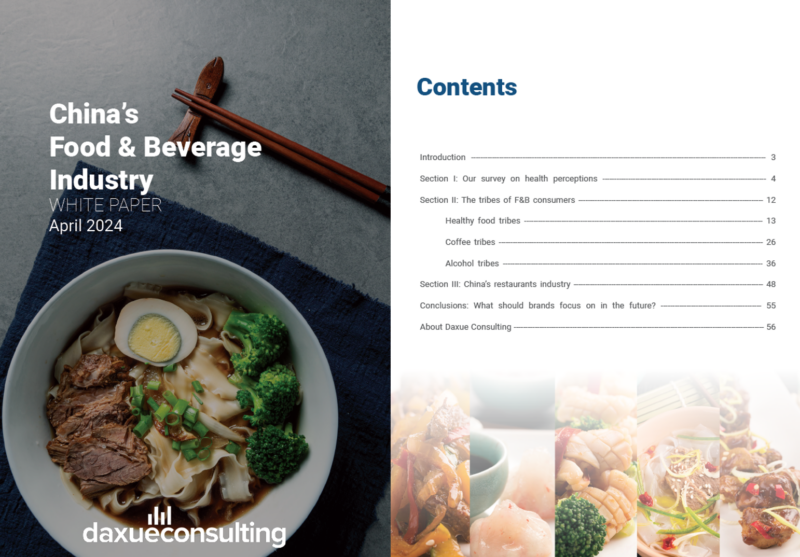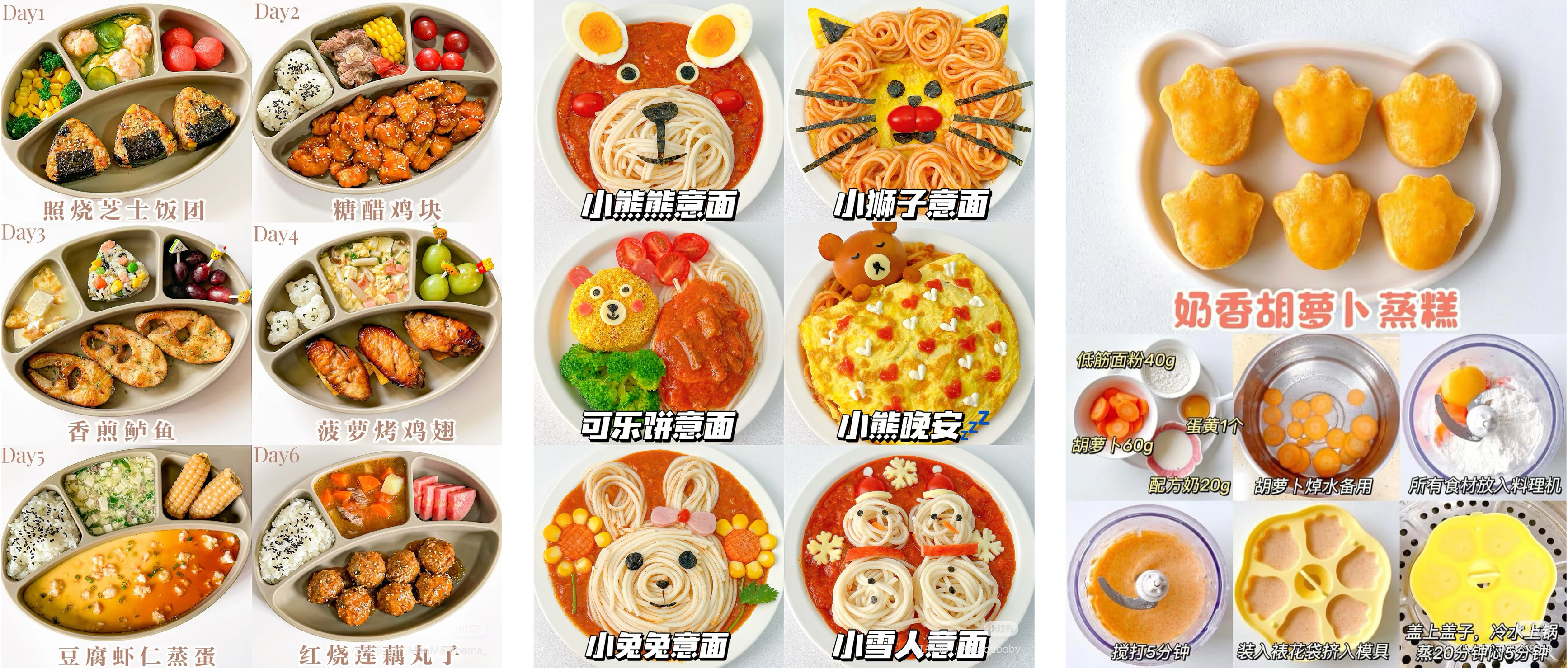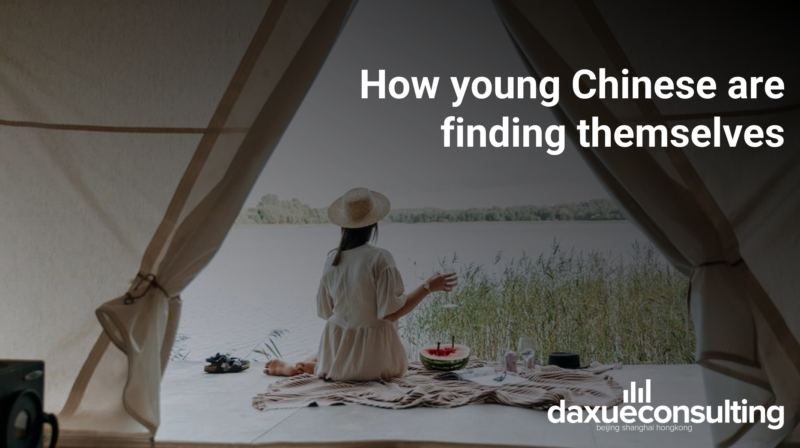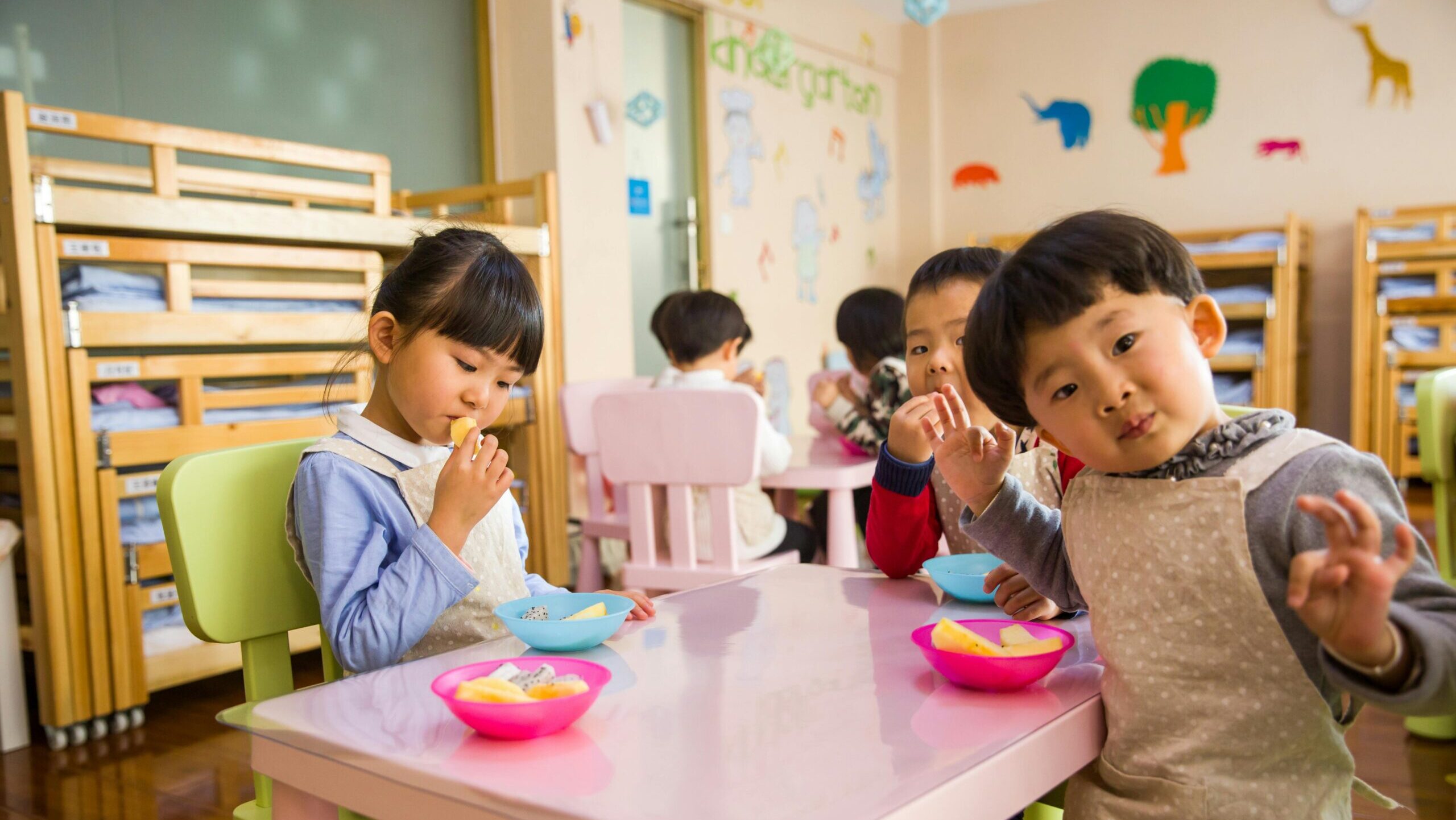Despite the government’s efforts to boost birth rate, such as offering a monthly allowance of RMB 800 per child to every household with two or more children, China’s birth rate fell to a record low of 6.39 births per 1,000 people in 2023. While the high cost of raising a child is a key factor in China’s child care market, there are other significant factors discouraging families to have more children – or any at all. Young women highlight persistent gender inequalities and patriarchal attitudes, expressing concern that having children would disrupt their careers. Additionally, parents want to focus on maximizing the quality of life for their only child rather than expanding their family.
Download our China F&B White Paper

How serious is China’s declining birth rate?
In 2016, the two-child policy replaced the one-child policy, allowing couples to have up to two children and in 2021, the government implemented the three-child policy. However, despite the policy changes, China’s low birth rate continues to be a problem.
According to estimates by the United Nations, the number of births per year was 18.3 million in 2016, when the two-child policy was implemented, and it continued to grow until 18.3 million in 2017. However, in 2018, before the two-child policy, it started to fall and has continued to decrease every year since then. In 2023, the number of births fell to 8.9 million. The number is projected to continue falling, raising concern that if it persists at least in the next 50 and 60 years, it could be irreversible and force the country to change how it operates its economy, migration policies, and other aspects of society.
What’s discouraging people to have babies in China?
This trend can be explained by several factors. First, the growing cost of living and raising children is turning families away from giving birth to multiple children, if any at all. The high cost of university fees, for example, prompt parents to focus on providing the best education and opportunities for their single child rather than expanding their family.
The second is the growth of single households, both male and female, that prefer investing in themselves or pets instead of family. Many young people are concerned that they will have less leisure time if they have children, and among women, having children would likely mean a career hold.
How important are health and safety to Chinese parents?
Chinese parents are showing a strong concern with the safety and quality of baby products. This partially comes because of the one-child-policy, which forced parents to focus on giving the best to their only child. In addition to that, past food safety issues made parents more alert with protecting their family.
One notable example was the 2008 melamine scandal. About 300,000 babies were sick and six were confirmed dead from drinking milk containing melamine, which is a chemical used in plastics and fertilizers. It turned out that the culprit was not a single company but several major brands, including dairy giant Sanlu Group. This incident dirtied the reputation of Chinese dairy brands and drove demand for foreign brands. In fact, after the food safety scandal, foreign brands rushed into China’s dairy market.
Covid-19 has spurred these concerns too, with people paying much more attention to the safety and quality of bought products. In 2021, health and family safety became the top concerns for half of Chinese consumers. Furthermore, this trend was further encouraged by the government, which has been introducing stricter regulations. The latest update to the regulations was made in 2023, making them “the world’s toughest”. It revised nutrition rules and aimed to protect children from any danger or malnutrition.
Today’s parents are concerned with their kid’s holistic wellbeing
Parents are embracing a new approach towards raising children, with more attention being paid to kids’ holistic wellbeing. They are much more willing to pay attention to their children’s needs and emotions, listen to their kids, and focus on communication.
Moreover, modern Chinese mothers pay much more attention to their own well-being than previous generations. Within the maternity and childcare market, the leading category purchased by Chinese consumers were maternal personal care items, with 66% of buyers acquiring the products. Along with this, the third place was taken by maternal clothing, with 50% of consumers buying it.
Entertaining non-academic education is gaining popularity
Parents today are more relaxed and place greater importance on creating an enjoyable learning experience for their children. For example, they buy early education entertainment products that combine entertainment and education, such as toys and interactive courses. Among the biggest online institutions is Huohua. With over 370,000 students as of March 2021, its courses are presented in the form of “animation + graphics”, combining knowledge points and animated story plots, which are more vivid and in line with the cognitive abilities of children in the age group. They are easy to follow and don’t require significant effort from parents and grandparents.
Parents can get creative with their children’s meals
Young Chinese parents are creative and meticulous when it comes to their children’s meals. They want to make sure their children’s meals are fun and balanced. For example, they transform food into cute characters and experiment with different textures to entertain their children.

They also place a high value on ensuring meals are both nutritious and balanced, incorporating ingredients from various food groups. In cases where their children are picky eaters, some parents discreetly add supplements to replace the foods their children refuse to eat. Additionally, they emphasize fostering independence by allowing their children to get messy and learn how to feed themselves.

Premium products: Buy less but buy more quality items
Premium-category products are seeing a rise, with parents willing to spend larger sums on premium items. The growing middle class is seeing an increasing purchasing power with disposable income expected to grow from RMB 35 thousand in 2021 to 47 thousand in 2025. Those born in the 1990s account for 60.6% of today’s parents, and millennials are much more willing to buy fewer, but higher quality products.
In the fashion industry in China, the higher spending capability encourages luxury brands to seek opportunities in the childcare market, producing more clothes for children. Brands like Bonpoint and Brave Kid are enjoying popularity, and childrenswear lines of Thom Browne, Burberry, and Ralph Lauren are cited as favorites by some parents.

Do young parents trust local brands more than foreign brands?
Guochao has perpetrated China’s child care market too. Interviews conducted by China Daily show a shifting tendency among buyers’ preferences. Older generations have more trust towards foreign brands, because they first encountered baby care products when imported products entered the Chinese market. Unlike them, young parents today tend to have higher trust towards domestic companies.
However, with the decline in birth rates, companies in the baby product industry are now exploring alternative avenues for growth. One such approach involves diversifying their target consumers. Yashili, for example, sells milk powder not only for 3-to-5-year-olds but also adults, especially the elderly.
China’s child care market: Is there room to grow with fewer kids?
- Despite the government’s effort to encourage people to have children, such as with the launch of the three-child policy and RMB 800 monthly allowance, birth rates in China continue to decline.
- Chinese people prefer to have no children or to focus on only one. Parents are willing to buy premium and luxury products and spend time and effort into making well-balanced and creative meals for their children.
- Safety and health are very important for both the Chinese government and parents. In the 2008 melamine scandal, about 300,000 babies were sick and six died from drinking a harmful chemical containing milk.
- Although previous generations trusted foreign brands more, young parents trust local brands more. This raises the need for brands to build trust with them.

Read our report on young Chinese consumers





